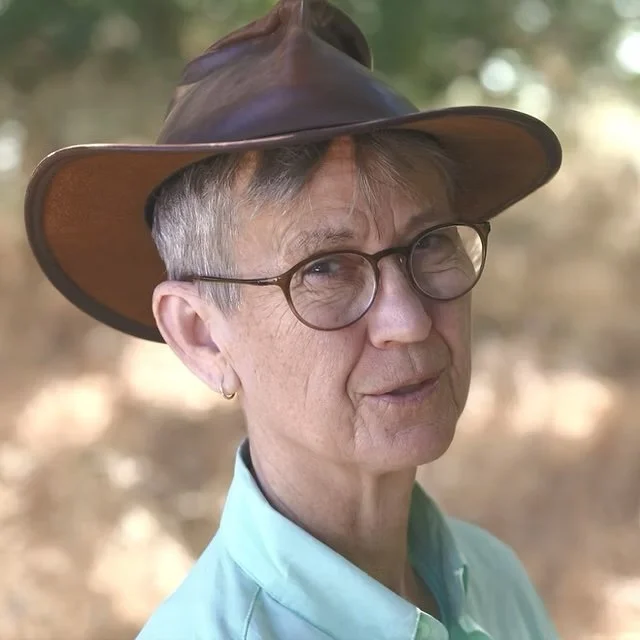
Ketamine Therapy Provider Training
A 7-week deep dive for clinicians: 30+ hours of training provided by 20 experts in the field
Feb 28 – April 11, 2026
Saturdays: 10am-noon & 1pm-3pm PST
Remote (via a learning platform & Zoom) • Recordings available
What makes our training unique?
Small Cohorts
Our class caps at 40 to ensure a personal learning experience. Trainees may also meet bi-weekly with a smaller group.
Affordable Tuition
In service of our nonprofit mission, our tuition is lower than similar programs, and we offer payment plans and scholarships.
Health Equity
Our training centers working with underserved communities through a social justice & harm reduction lens.

Class Fee
$2100
+ $400 for CE credits (optional)
Low Income?
Select a payment plan (with CEs or without CEs) to checkout or apply for a scholarship
Trainees Receive
◆ 29.5 hours of live training with 20 trainers
◆ 1.5 hours of training specifically for prescribers
◆ 2 hours of pre-recorded training
◆ 4 hours of connection with a small “home group” optional
◆ Discussion forum with learners and instructors
◆ Templates for your practice: e.g., consent & intake forms; informational documents for clients
◆ All course materials: e.g., presentations; documents; required readings; guidelines; videos
◆ Certificate of completion
◆ 32 hours of continuing education (CE) credit for licensed professionals optional with $400 fee
Sample Schedule
-
Class 1: Introduction to Therapeutic Ketamine
Class 2: Models of Ketamine Therapy
Learning Objectives:
Describe the pharmacology and the psychological mechanisms of action associated with therapeutic ketamine
Describe the clinical indications and routes of administration associated with therapeutic ketamine
Describe the contraindications and risks associated with therapeutic ketamine
Articulate a relational approach to ketamine-assisted therapy
-
Class 1: Decolonizing Psychedelic Therapy
Class 2: Intro to Harm Reduction TherapyLearning Objectives:
Analyze the impact of colonization on the field of mental health
Utilize harm reduction psychotherapy approaches in ketamine-assisted therapy
Identify the concept of "psychedelic exceptionalism" and how it may impact your work with clients
Identify the ways in which the war on drugs impacts populations who do not have equitable access to psychedelic-assisted therapy
-
Class 1: Ethics of Psychedelic Therapy
Class 2: Medical Risks & Safety Protocols
Class 3: Psychological Risk & Assessment for Underserved Populations
Learning Objectives:
Describe the ways in which social justice and a culturally informed treatment support effective and ethical practice of therapeutic ketamine
Articulate the safety protocols and best practices in working with underserved populations
Identify how to collaboratively assess clients for ketamine assisted therapy treatment
Critique current models of psychedelic assisted therapy and whether or not they fit for underserved populations
-
Class 1: Preparing “Set”
Class 2: Preparing the “Setting”
Learning Objectives:
Prepare clients for ketamine assisted therapy
Describe the most essential aspects for the preparatory phase of ketamine assisted therapy
Analyze how you might appropriately address the increased power differential with a client who is in an altered state during the preparation phase of treatment
-
Class 1: Holding Space
Class 2: Business ApplicationsLearning Objectives:
Describe some of the conditions that can help facilitate transpersonal experiences in ketamine assisted therapy
Learn about culturally responsive ways to create a therapeutic holding container during ketamine sessions
Apply knowledge in implementing ketamine assisted therapy in non-profit, private practice, and group practice settings
-
Class 1: Integration
Class 2: Trauma-Informed KAT
Learning Objectives:
Describe key elements of best practices when facilitating integration sessions following a therapeutic ketamine session
Learn about the current legal status of providing integration therapy
Apply clinical skills in assessing clients for elements of acute, developmental, and systemic trauma
Apply cultural sensitivity principles when working with therapeutic ketamine for treating trauma
-
Class 1: Integration Through Active Imagination
Class 2: Cleansing/ClosingLearning Objectives:
Apply skills in assisting the client in integrating subconscious material through the use of active imagination practice
Apply rituals for appropriately cleansing and closing psychedelic assisted therapy sessions
Working with ancestral relationships
-
Touch & Psychedelic Therapy
Learn about legal and ethical guidelines re: providing touch as an intervention in therapy, as well as frameworks for how to talk about consent in psychedelic-assisted therapy
Nuts & Bolts
Learn tools for working with “adjunctive clients,” those who already have a therapist they’re working with, and how to closely collaborate with their treatment process. Also learn about the flow of specific treatment details at Alchemy, including some info re: groups & couples work.
-
We’ll offer a 1.5hr training specifically for prescribers, though others are welcome to join. We typically schedule this on a Sunday during the training, and upload recordings for those who can’t attend.
Testimonials

FAQ
-
While we’re still limited in terms of what we can offer since we’re a small nonprofit, we do our best to maintain our commitment to our mission of equitable access. We have some limited scholarships and payment plans available (with CEs at $625/mo for 4 months or without CEs at $525/mo for 4 months). We’ve also created a Canva template you can make a copy of and edit to support crowdfunding efforts. We hope you’ll be able to make it!
-
Ketamine is the only legal psychedelic currently available to use outside of clinical trials. It’s a unique medication in that it’s a dissociative anesthetic with psychedelic properties at higher doses. Ketamine is one of the most widely used drugs in modern medicine, and is on the World Health Organization’s List of Essential Medicines. In the last two decades, ketamine has been increasingly clinically applied at sub-anesthetic doses as an off-label treatment for various chronic and treatment-resistant mental health conditions, such as depression, substance use disorder, post-traumatic stress disorder, anxiety disorders, and other psychiatric diagnoses.
Paired with therapy, ketamine can be an especially powerful tool to process stuck emotions, lower defenses, decrease symptoms, and increase neuroplasticity. This training will help providers learn about how to provide ketamine assisted therapy with clients who qualify for ketamine to support their mental health symptoms through a trauma-informed lens.
-
This online training program is primarily for mental health practitioners (psychologists, therapists, social workers, counselors, and psychiatrists). Pre-licensed mental health practitioners who are graduating from their masters or doctorate programs within a year are also welcome to join. Other health professionals and masters-level spiritual counselors are eligible as long as they have had training in mental health. Please contact trainings@alchemytherapy.org if you’re not sure if your license applies.
-
All sessions will be held live via Zoom. Readings, presentations, and recordings of the sessions will be available online through a user-friendly learning management software, which will also include a space for discussion. Optional weekly home groups with two of our facilitators will also be available for those who want to practice what they learn and deepen into community.
-
This training will not include a ketamine experiential. However, this is something we may consider offering for those who fully complete our training and have a qualifying mental health diagnosis. We will, however, have an experiential “active imagination” workshop, which will give participants an opportunity to engage with their subconscious without active medicine.
-
Yes! The $2,500 cost includes 32 Continuing Education Credits.
More information on CEs:• To receive CEs, this course requires live virtual attendance for at least 10 out of 14 Zoom classes over the 7 weeks (each Saturday has two classes). Attendance includes active engagement in the live training and remaining on-camera for the duration. We will be tracking attendance. All required readings must be completed and virtual quizzes must be passed. CEs cannot be made up by watching a recording of the training. If you do not attend enough live trainings to fulfill the CE requirements, you will not receive any CEs because partial credit is not allowed. Being more than 15mins late counts as an absence. All required readings must be completed and virtual quizzes must be passed.
• CE credits for psychologists are provided by the Spiritual Competency Academy (SCA) which is co-sponsoring this program. The Spiritual Competency Academy is approved by the American Psychological Association to sponsor continuing education for psychologists. Spiritual Competency Academy maintains responsibility for this program and its content.
• The California Board of Behavioral Sciences accepts CE credits for LCSW, LPCC, LEP, and LMFT license renewal for programs offered by sponsors of CE who are approved by the American Psychological Association.
• LCSW, LPCC, LEP and LMFTs, and other professionals from outside of California need to check with their state licensing board as to whether or not they accept credits from programs offered by approved sponsors of CE by the American Psychological Association.
• SCA is approved by the California Board of Registered Nursing (BRN Provider CEP16887) for licensed nurses in California. RNs must retain their certificate of attendance for 4 years after the course concludes. Nurses outside of California must confirm acceptance with their licensing boards.
• For questions about your certificate or the content, logistics, or other support issues regarding this course, please contact Alchemy at trainings@alchemytherapy.org
• For questions about whether APA CE is valid for you, contact your licensing board directly.
• For general questions about APA CE, contact SCA at info@spiritualcompetencyacademy.com.
-
After completing the training, you will receive a certificate of completion, which some malpractice insurance companies may ask for. This is not the same as becoming “certified” in KAT, because there is currently no official certification board setting the standards.
We hope this training gives you enough of a foundation to decide if this is a path you might want to pursue. If so, we hope that you seek more support and clinical consultation as you step into this work with clients, including reaching out to us for co-therapy opportunities, role play feedback, recorded session feedback, and continued training.
-
If you’ve been an Alchemy client but no longer are now, you’re welcome to join. If you are a current client, we’d also love to have you, but we encourage you to talk to your therapist so we can minimize dual relationships when possible. You’re also welcome to reach out to our Clinical Director at irina@alchemytherapy.org if you have any questions or concerns.
-
Alchemy is committed to providing high quality trainings to participants in our program. Our trainers have had experience training intern therapists and licensed providers since 2019, when we opened our clinic doors. If you are ever unsatisfied or would like to offer feedback, please email trainings@alchemytherapy.org
For live training programs, participants must cancel 3 weeks before the program starts to get a full refund. If canceled within the first week of the program, participants can receive a 50% refund (minus a $25 admin fee and payment processing fee). If canceled after a week, participants cannot receive refunds. In the case of an emergency cancellation, participants can ask to extend the time the class recordings are available in order to still receive a certificate of completion (without CE credits).































